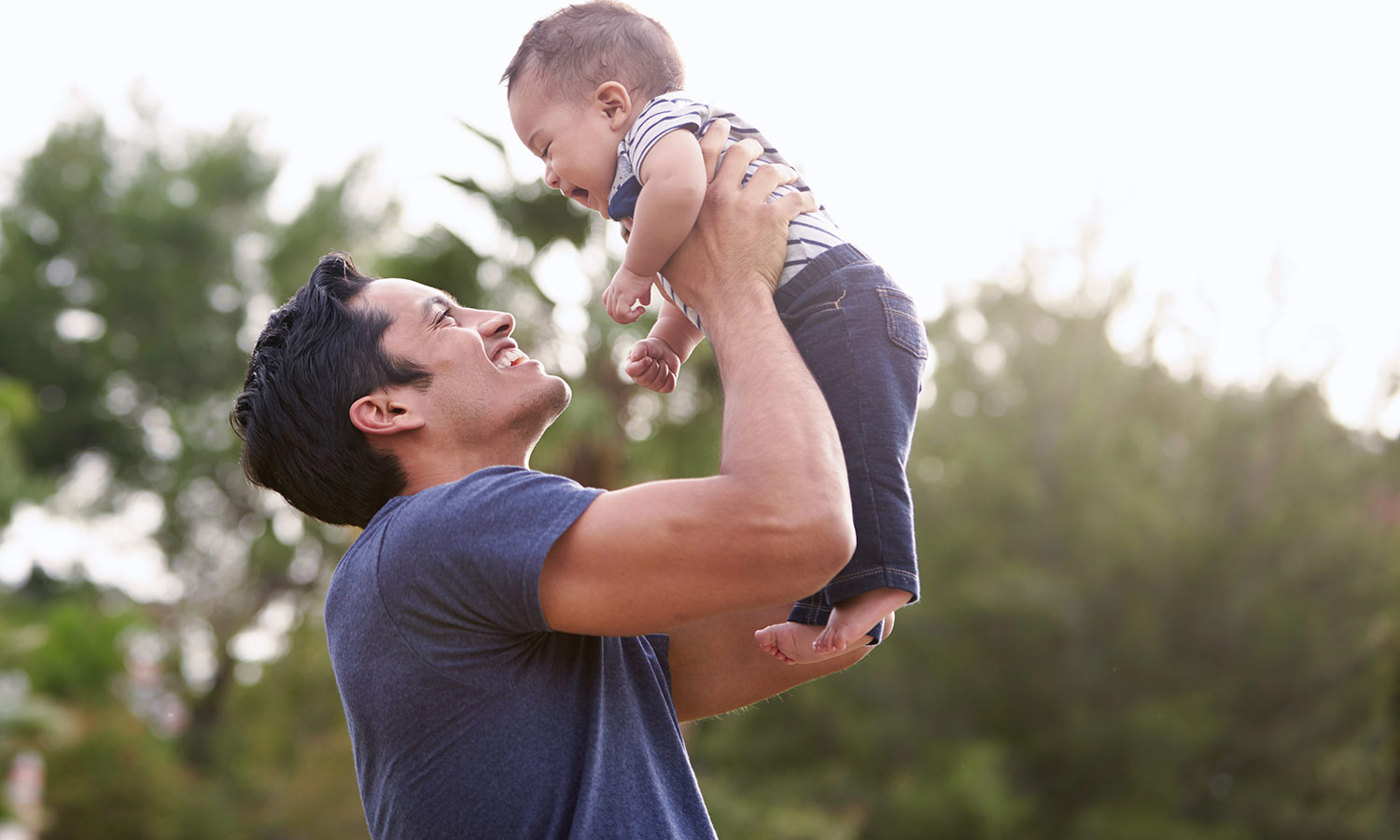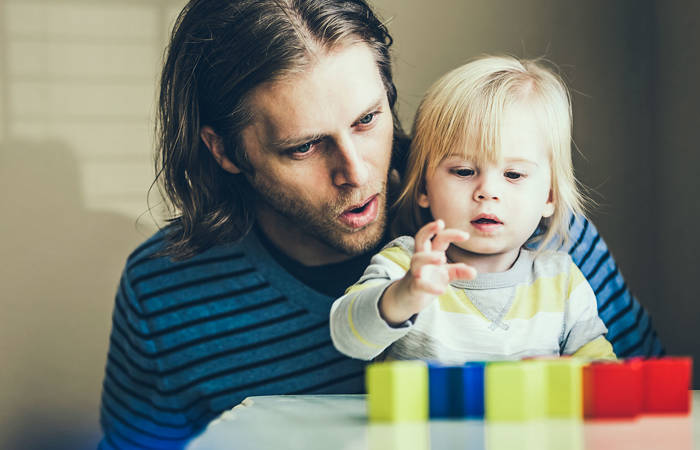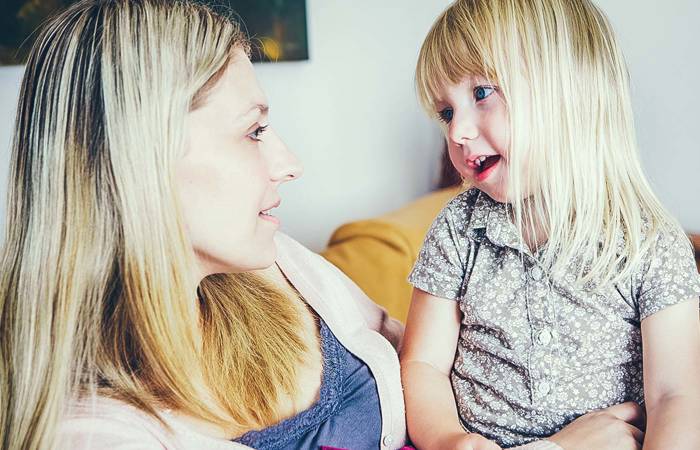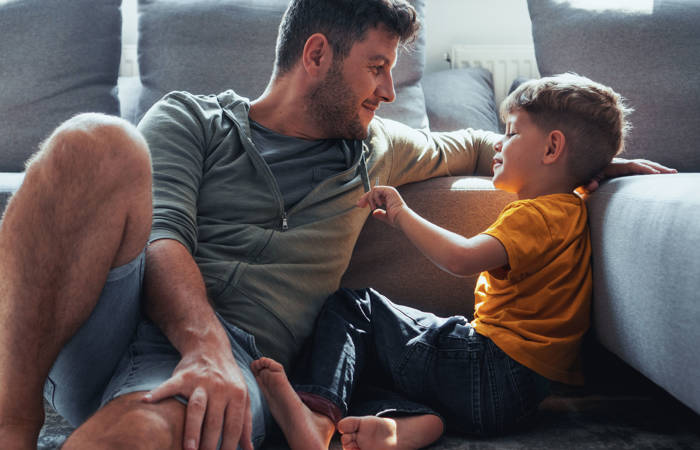Like what you see?
Sign up to receive more free parenting advice.
Thank you for subscribing to our newsletter!
Early Learning

Credit: iStock.com/monkeybusinessimages
Babies need to hear and be heard. Professor of Early Childhood Sheila Degotardi answers the questions: What is the importance of answering back when babies communicate? How can parents and educators encourage early communication?
By the time they are born, infants are immersed in the sounds of human interaction. With the exception of those with a significant hearing impairment, infants hear and react to human voices while in the womb, and they even respond differently to familiar versus unfamiliar voices.
At birth, they continue to respond to those who talk to them – they turn their heads to show interest, they watch speakers with interest, and will move their mouths as if to join in the conversation. These skills have led many to agree that babies come into this world not only ready to learn language, but also ready to chat!
Now of course, it is some time before infants start to use words and sentences to communicate with others. But this does not mean that they are not participating in language interactions from the first weeks of their lives.
When encouraged, infants skilfully coordinate their movements and sounds with a responsive adult. They watch attentively while the adult speaks to them, and then move or coo in response before pausing in anticipation of a response. These early interactions are like conversations, with both infant and adult talking turns to contribute. Importantly, these two-way conversations are essential for infants’ language development.
The importance of “answering back”?
While it is clear that babies are born with an innate ability to tune into language, it is equally clear that their language development is shaped by the kinds of interactions that they experience from birth.
Babies need to hear and be heard. They need adults to talk to them, but equally, they need to know that they can have an effect on others - that their movements, expressions and vocalisations will draw an adult response.
These early to-and-fro conversations provide infants with comfort, joy and an emotional connection to their caregivers, which in turn motivates them to use their emerging communication skills.
Significantly, recent research is confirming that mutually responsive conversations are vital for strong language development. Research has found that pre-verbal infants whose parents respond in a timely manner to their vocalisations changed their babbling patterns to match the sounds and intonation of the parent1.
Other studies2 have found that infants who engage frequently in to-and-fro interactions have larger vocabularies than infants who experience fewer to-and-fro conversations. It is not only the parent who controls this process. These researchers reported that, when an infant vocalised while looking at their parent’s face, the parent was most likely to respond in a timely and meaningful way. Importantly, it was the combination of infant vocalisations and parent coordinated responses that most strongly supported infants’ word learning.
The importance of conversations does not stop once the infant starts to use verbal language.
In one study3, researchers analysed whole-day audio recordings of the talk and conversations experienced by infants and toddlers in their homes. The study found 18 to 24-month-old toddlers who engaged in frequent conversations with their family members had significantly stronger language and cognitive skills development ten years later than those who engaged in fewer conversations. Not only does the power of early conversation last well into children’s school years, but that it also holds benefits for their cognitive, as well as language development.
Babies need to hear and be heard. They need adults to talk to them, but equally, they need to know that they can have an effect on others - that their movements, expressions and vocalisations will draw an adult response.Professor Sheila Degotardi
Stay up to date with the latest news and articles from First Five Years
Thank you for subscribing to our newsletter!
What can parents and educators learn from these studies?
Together, these studies stress the importance of talking and interacting with infants from birth. These interactions help infants to tune into a world of language – its sounds, patterns, rhythms and functions – enabling them to gradually adapt their own communications to fit in with those of others around them. Over time, infants contribute more and more to these conversations, using sounds and gestures to convey feelings, wants and ideas. To-and-fro conversations help infants to match sounds with familiar objects and events, which ultimately brings forth first words and sentences.
How can parents and educators encourage early communication?
It can sometimes be difficult to know what to say to a pre-verbal infant. The following tips can help adults to tune into infants’ earliest communications:
- Chat to infants about what you or what they are doing, seeing, feeling or experiencing, and talk to them as if they understand. Using comments like “How about we change your nappy. You lie here, while I find the wipes” or “Are you looking out of the window? I think you can see the tree moving”, will help infants to tune into the patterns of your talk, and eventually will support their vocabulary growth.
- When infants vocalise, make facial expressions, or move their bodies. Talk back to them as if they are trying to communicate something - “Are you asking me to pick you up?”, “Oh, that wipe is cold. I can see you didn’t like that”. Your response will help them to understand that they are being heard.
- Watch infants’ faces when you talk to them and pause after you have said something. This will help you to notice subtle responses, like facial or body movements or coos. You can then respond to these cues by talking a little more.
- Ask simple questions. While you may not get an answer in words, questions make us pause and invite a reply, which you can then respond to – “Did you hear the bird? …. Listen! Do you think it’s hiding in the tree?”.
- Play face-to-face games – singing and tickle games like “This little piggie”, “Round and round the garden” and “Peekaboo” encourage infants to respond and participate.
Conversations are therefore supported by close and mutually responsive relationships, where both adults and infants not only want to contribute to the conversation but are clearly interested in what the other has to say. These conversations not only enrich infants’ lives, but also guide them towards a world where they can use their language skills to the full.
1 Goldstein, M.H. and J.A. Schwade, Social feedback to infants' babbling facilitates rapid phonological learning. Psychological Science, 2008. 19(5): p. 515-523.
2 Donnellan, E., et al., Infants’ intentionally communicative vocalizations elicit responses from caregivers and are the best predictors of the transition to language: A longitudinal investigation of infants’ vocalizations, gestures and word production. Developmental Science, 2019. 23(1).
3 Gilkerson, J., et al., Language experience in the second year of life and language outcomes in late childhood. Pediatrics, 2018. 142(4).







